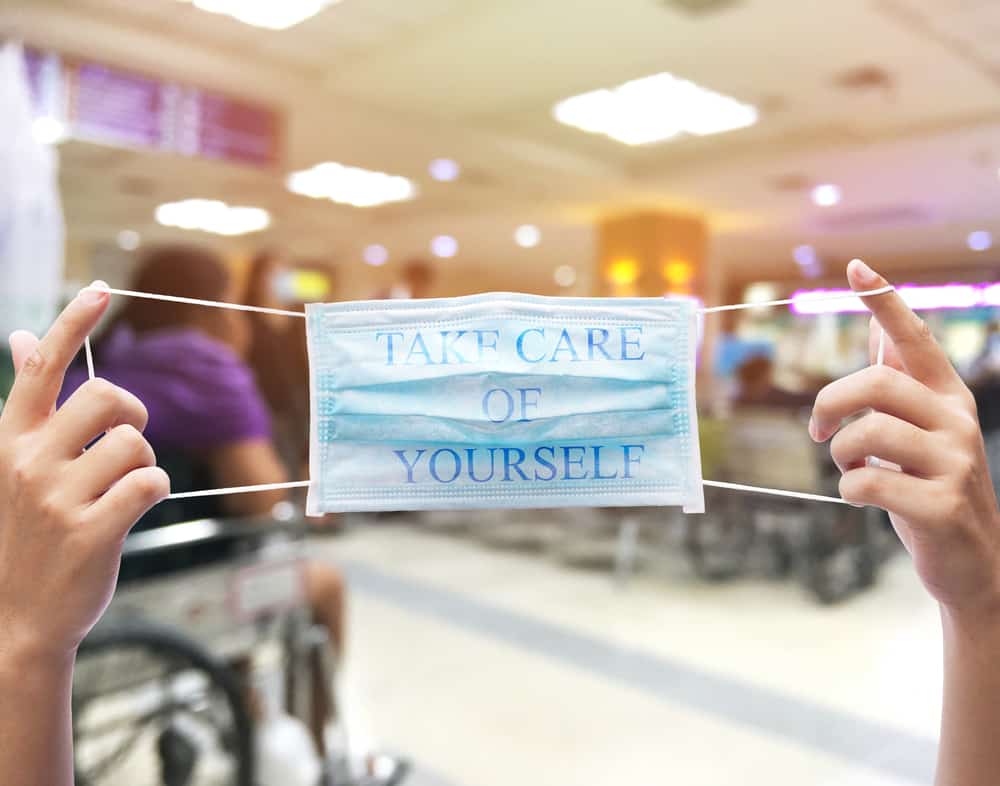Within a few short weeks, life for us all has turned upside down. Almost 95% of Americans are currently under stay at home orders/shelter in place directives to help slow the outbreak of COVID-19. Even with these measures, hospitals around the country continue to face a rising number of coronavirus cases.
We all feel the strain of this public health emergency, particularly if you are part of our nation’s healthcare force. Both those working on the front line as well as those working behind the scene have had an enormous weight thrust upon you. This comes on top of an already complex environment, a shift toward value-based care, and all that shift entails.

It’s crucial for all of you who work in healthcare to make time to care for their physical and mental health, especially during a pandemic. In light of this month as National Stress Awareness Month, let’s explore 5 activities perfect for self-care during coronavirus that healthcare teams (and everyone else) can easily add into our daily routines.
#1: Make time to focus on breathing
When we’re faced with a crisis, our bodies instinctively jump into flight or fight mode. As the number of COVID-19 cases rises, it’s easy to feel stressed out. Fortunately for those of you who work in healthcare, you are already exceptionally equipped at dealing with high-pressure situations.
This type of pandemic may be new, but it calls on the skills and experience you’ve developed for years.

Diving into work headfirst to counteract the natural adrenaline response may be your natural response, but it may be more helpful to:
- take a moment to be still
- take a deep breath
- close your eyes (when you can) and pay attention to your breath
- relax your muscles
- count to 5 and slowly inhale
- exhale slowly, doubling the length of your inhale
- repeat throughout your day as needed
These steps can help provide you with a sense of calm and focus so that you can better handle the stress ahead.
#2: Prioritize personal care activities
Right now you have a lot of responsibilities on your shoulders, and you may or may not have the energy to spend time on yourself. But now more than ever we need you to prioritize your own health and mental well-being.
While it’s easier said than done, eating right and finding time to sleep are of course at the top of the self-care list. It’s also vital that you openly communicate your needs both at home and to your team members.
Reach out to a friend or a family member to talk about what you’re facing during this public health crisis. Whether you’ve been furloughed and have extra time at home or you’re face to face with this pandemic inside your facility, be open about what you need. Devote time to exploring resources and activities that will keep you going well beyond the current state of affairs.
Taking care of yourself is the only way you’ll be able to do your job effectively while keeping you physically well enough to stave off the virus or recover from it.
#3: Find ways to connect that work for you
Social distancing, closed stores and restaurants, quarantines, and stressed out coworkers can make you feel disconnected. This may be doubly true for those of you who work remote and those who relied on simple outings to boost your mental well-being.
To say we live in a digital-centered era is an understatement. We have tools for video chatting, calling, and messaging that allow us to communicate with loved ones and to keep a sense of community alive. Be creative with how you reach out. You can:
- try a virtual lunch using Skype
- take a virtual yoga class using Facebook
- FaceTime a friend you haven’t talked to in a while
- check in for daily coffee with your fellow remote team members via Zoom
- explore virtual museum exhibits with friends online

It’s also an excellent time to connect with yourself. Spend a few minutes each day writing about what you’re seeing and dealing with during this pandemic. Take a walk around your neighborhood. Spend extra time with your pets. Enjoy a few chapters of a good book before bed or simply a few quiet moments to yourself.
#4: Know when to turn off the news
As healthcare teams, having updated information about this pandemic is vital. But being bombarded with information at work and at home can leave you feeling drained.
Between social media, news apps, and TV headlines, it can quickly seem impossible to escape emotional stories about what the world is experiencing.
Resolve to stay informed, but to turn off news before you feel overexposed to it. Prevent information overload by:
- paying attention to official communications from your employers and coworkers
- choosing carefully who you listen to (e.g. healthcare experts)
- realizing how much information you consume and how frequently you consume it
- noting the time of day you expose yourself and making adjustments as needed (e.g. checking statistics right before bed and then again immediately when you wake up may make you feel more stressed)
#5: Create daily self-care habits
Unfortunately, many forms of your favorite self-care may not be options right now due to stay at home directives. But that doesn’t mean you can’t find ways to infuse self-care into your daily routine.
Challenge yourself to go for a run before bed. Turn off your phone at the same time each night so you can enjoy a few moments of peace. Try a new healthy recipe. Schedule weekly Skype calls with loved ones. Support your local restaurants after your shift by ordering takeout. Scratch one thing off your to-do list around the house each week.

Whatever it is, set aside a little time for yourself to enjoy something you love without worrying about the pressures of work. Don’t feel stressed to take on several self-care habits at once. Carving out a bit of time each day for just one habit can go a long way in giving you the strength you need both now and after this crisis.
We’re here to empower you
At Harmony Healthcare, our goal is simple: to help healthcare professionals and organizations move past their limitations, empower them to create change, and make more success achievable. That’s the promise we make to our clients and our consultants.
Learn more about our open career opportunities here | Subscribe to our monthly newsletter here
Join our Facebook community here | Join our LinkedIn community here



